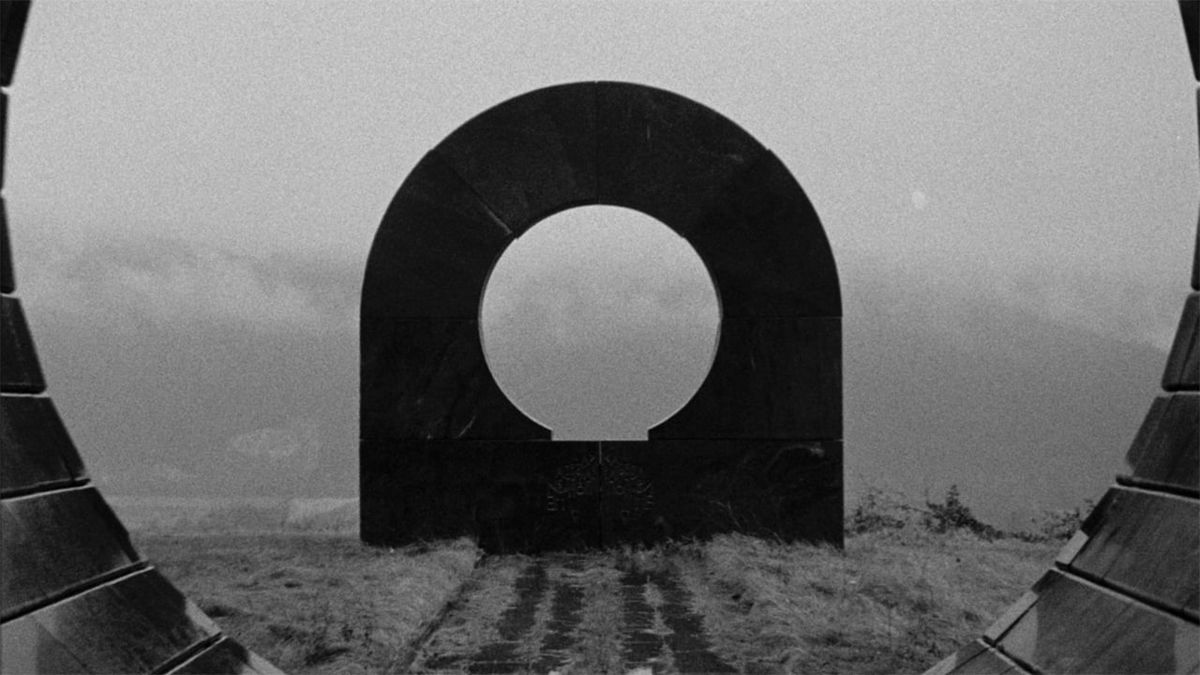
Perhaps best known, in North America at least, for his incredibly moving minimalist score for Denis Villeneuve’s Arrival (2016), amongst others, Icelandic composer and filmmaker Jóhan Jóhannsson’s Last and First Men, released posthumously, makes for one haunting, honey of a post-apocalyptic parting gift. Jóhannsson, who tragically passed away in 2018 from an accidental overdose at age 48, had already been working for some time on this project, a non-narrative, sci-fi shaken, self-examination of mankind’s future history, inspired and loosely adapted from Olaf Stapleton’s 1930 novel “Last and First Men: A Story of the Near and Far Future”.
Beautiful black-and-white imagery, filmed in stunning 16mm by cinematographer Sturla Brandth Grøvlen (Victoria), combined with fittingly chilly narration from Tilda Swinton, evoke the final gasps of a lost utopia in an entirely immersive and cerebral essay film. It’s a somber yet intricate sci-fi spectacle that lands somewhere between Chris Marker’s La Jetée (1962) and Stanley Kubrick’s 2001: A Space Odyssey (1968) — in fact, Arthur C. Clarke read Stapleton’s novel at a very impressionable age, inspiring not only his short story “The Sentinel” but the monoliths therein that would become the most iconic imagery in Kubrick’s adaptation and overall oeuvre.
The eerie and evocative retro-futurism imagery that pervades Last and First Men, largely captured in Yugoslavia, are massive monuments erected by the Socialist Federal Republic of Yugoslavia, and in a somewhat Brechtian manner, are repurposed and recontextualized for Jóhannsson’s experimental means, and it’s this action, which may well do something of a disservice to those who fought the National Liberation War against axis forces, namely Nazi Germany, that is done consistently and regularly by the likes of Spike Lee (who routinely inserts imagery of real-life atrocity amidst his narratives, most recently in this year’s Da 5 Bloods) and Werner Herzog’s documentaries, such as Fata Morgana (1971) and The Wild Blue Yonder (2005).
Last and First Men presents a future vision aimed at contemporary man from the last generation of our species as they stare down annihilation from the very sun itself, and while that rather brief and ambiguous summation does the film little justice, rest assured that there’s an elegiac strangeness and a gracefully melancholic timbre that makes this swan song from Jóhannsson utterly one-of-a-kind, despite the antecedents already suggested and our planet’s present distressed state of unrest and leering apocalypse. This is a dreamy and dazzling final statement on ephemerality and extinction from a remarkable polymath artist we were only just getting to know. Highly recommended.
Taste of Cinema Rating: 4 stars (out of 5)
Author Bio: Shane Scott-Travis is a film critic, screenwriter, comic book author/illustrator and cineaste. Currently residing in Vancouver, Canada, Shane can often be found at the cinema, the dog park, or off in a corner someplace, paraphrasing Groucho Marx. Follow Shane on Twitter @ShaneScottravis.